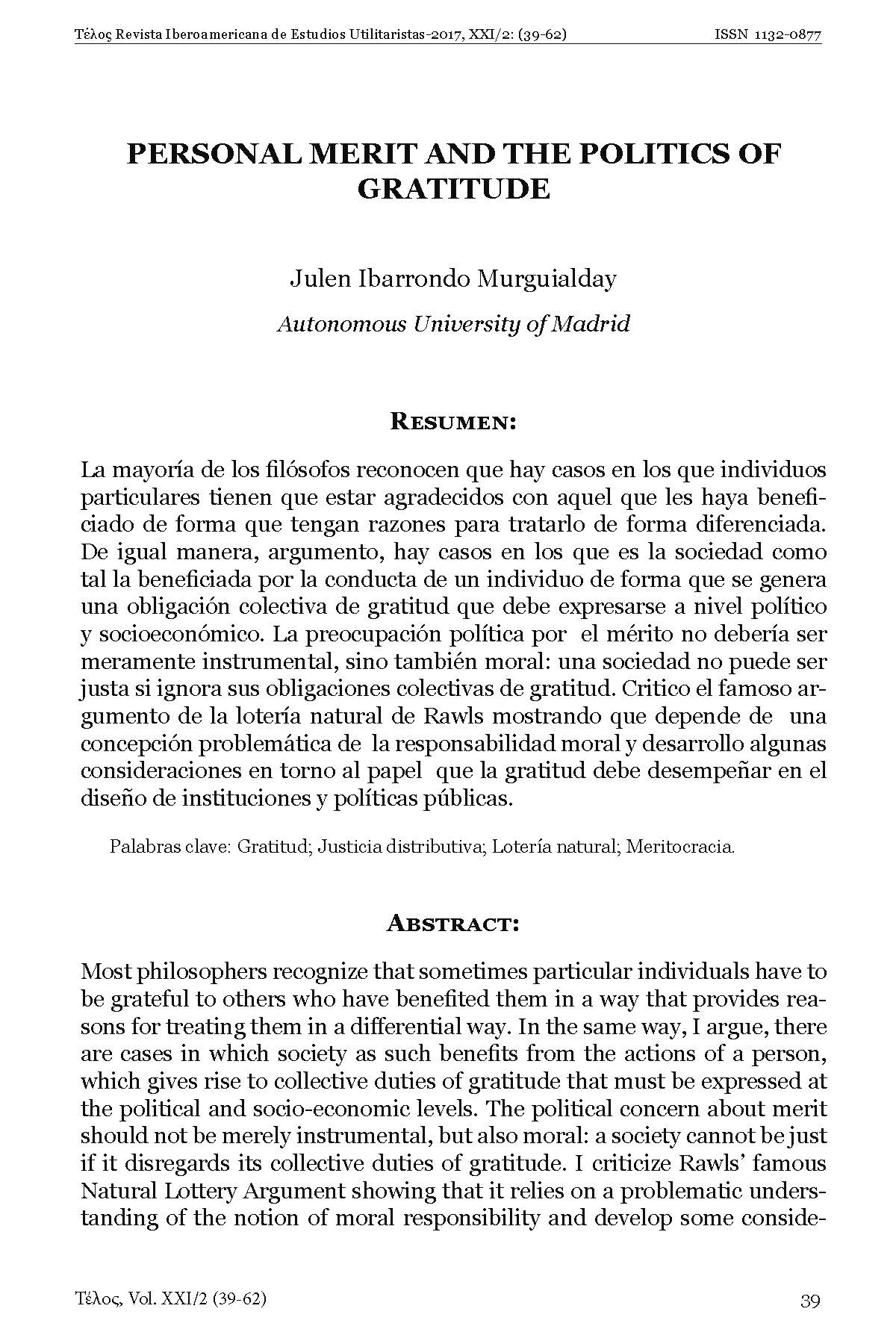Personal Merit and The Politics of Gratitude
Contido principal do artigo
Resumo
Most philosophers recognize that sometimes particular individuals have to be grateful to others who have benefited them in a way that provides reasons for treating them in a differential way. In the same way, I argue, there are cases in which society as such benefits from the actions of a person, which gives rise to collective duties of gratitude that must be expressed at the political and socio-economical levels. The political concern about merit should not merely instrumental, but also moral: a society cannot be just if it disregards its collective duties of gratitude. I criticize Rawls’ famous Natural Lottery argument showing that it relies on a problematic understanding of the notion of moral responsibility and develop some consideration on the role that gratitude should play when designing both public institutions and policies.






